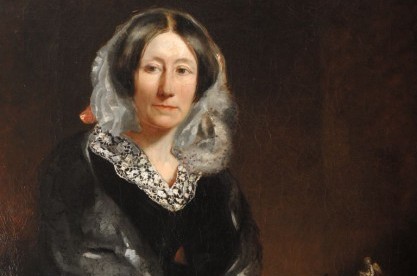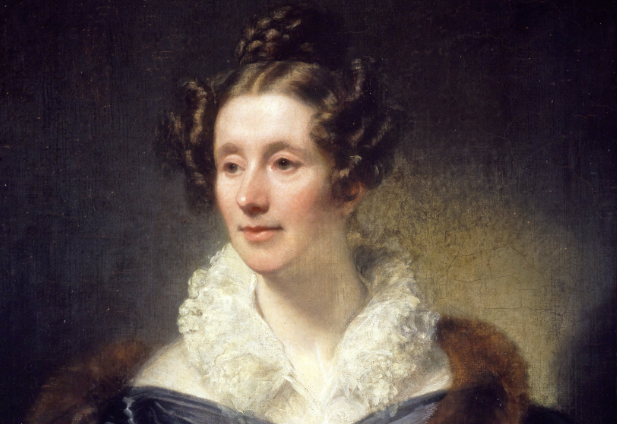 The only woman on the shortlist, Mary Somerville would be the first woman to appear on an RBS banknote other than the Queen, should she win.
The only woman on the shortlist, Mary Somerville would be the first woman to appear on an RBS banknote other than the Queen, should she win.
The Bank is asking members of the public to vote for one of the three candidates (the other two being Thomas Telford and James Clerk Maxwell) by next Sunday 7th February. You can take part in this historic vote by signing into Facebook, going to RBS Facebook page and ‘liking’ your preferred candidate.
Mary Somerville (1780-1872), astronomer, mathematician and one of the great scientific writers of the nineteenth century, was the original prototype for the term “scientist”, a phrase coined by William Whewell to describe her. Largely self-educated, she advocated all her life for women’s education and women’s rights, and gave her name to Somerville College Oxford.
Mrs Somerville was at the forefront of the transmission of new scientific and mathematical ideas and practices to the literate public of nineteenth century Great Britain through her books and scientific writings. She was entirely self-taught since her parents had been opposed to the idea of education for women and her career only really began in her thirties once she married William Somerville, a proud and supportive husband.
As a woman she was excluded from the top scientific societies (Her paper On the Magnetizing Power of the More Refrangible Solar Rays was published in the Philosophical Transactions of the Royal Society under William’s name) but flourished in the scientific world through her network of friends and acquaintances, with whom she discussed and refined the theories and discoveries at the forefront of the scientific world.
Her first book On the Mechanism of the Heavens was a translation and exposition on Laplace’s seminal work and effectively brought the new continental mathematics to the attention of scientists in the UK. Her Physical Geography was used as a textbook at Oxford and Cambridge well into the twentieth century and her Connexion of the Physical Sciences brought together and publicised all the known scientific work being done in the UK at the time and ran to nine editions (all of which she updated herself ). She died at the age of 91, reading a book on quaternions.
For more about Mary Somerville’s life and work see Mary Somerville, Scientist, Writer and a Woman of her Time, a talk given by Dr Alice Prochaska in March 2015.
You can also find coverage of the campaign from BBC Scotland and the Guardian.
